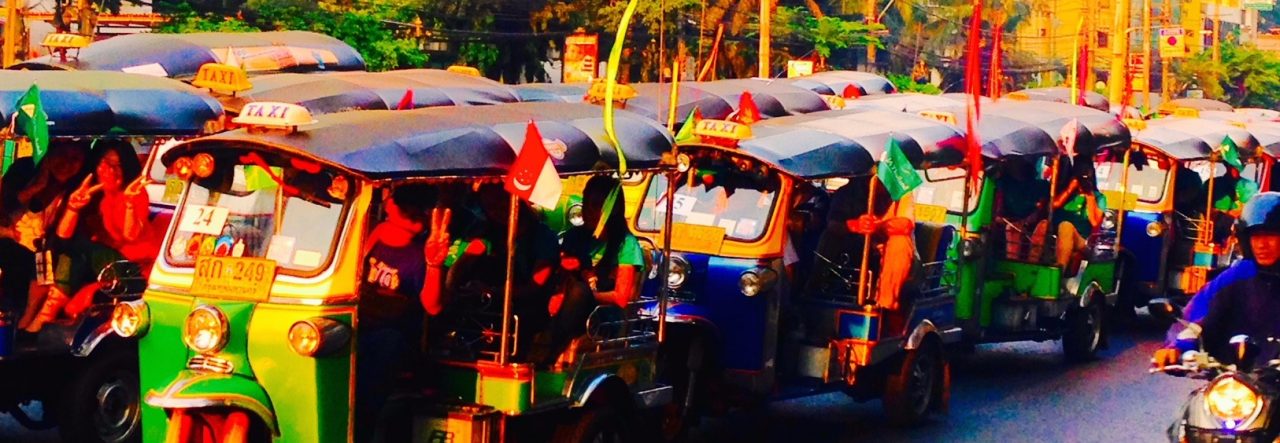By Bobby Anderson
This blog accompanies the launch of our fourth working paper: found here.
A researcher who spends long enough in Timor-Leste’s capital, Dili, will likely develop an impression of the countryside where most Timorese live, based on what many civil servants and development workers describe. Dire claims coalesce around a key set of themes: Timor-Leste’s difficult terrain impedes or prevents health, education, and other services from functioning effectively, and this results in a shortage of qualified civil servants, and in some of the remotest areas, no civil servants at all; this sets the stage for yet another generation of uneducated and unhealthy Timorese who will require international assistance. This is often followed by the refrain that “we are a new country”. Such claims are supported by dire statistics: a state teetering on failure is implied.
In 2016 – 2017 I was privileged to lead a small team undertaking research on government service delivery in rural Timor-Leste on behalf of the Australia – Timor-Leste Partnership for Human Development at exactly the point where citizens interact with government- namely, in village health posts and central/ filial schools, as well as sub-district and village administrative offices. What I found was not what was described in Dili.
“Remote” proves relative in Timor-Leste, especially in comparison to other areas of Southeast Asia and Melanesia. Iliomar, often cited as one of the most remote areas of the country, can be reached in nine hours from Dili by car, with a nearly uninterrupted 3G phone signal across the entire journey; by no standard of measurement is this remote, especially compared, for example, to areas of nearby Indonesian Papua that are up to a week’s walk from a road, with complete network absence. No area of Timor-Leste that the author or his informants are aware of suffers a lack of services and corresponding ill health, high mortality and low school attendance or performance due to remoteness. In Timor-Leste, claiming that geography inhibits service delivery is disingenuous.
Bromides concerning low human resource capacity and presence outside of towns are also not supported. Across Timor-Leste’s rural areas, civil servants are at their posts and doing their jobs in a challenging environment—one in which decentralization has already in some imperfect manner occurred, with schools functioning autonomously and health services improvising to provide services due to a lack of consistent national support.
We talked to teachers, assistants, nurses, midwives, and local administrators. We started with open-ended questions, inviting people to tell us the difficulties they had doing their jobs, and let the interviews go where they led. They were explicit about their needs and direct in their criticisms. A broad consensus emerged about what makes the jobs of civil servants difficult, namely an opaque and inward-looking center that lacks understanding of the areas of the country where most Timorese live. This is compounded by the lack of an accountable and responsive administrative link between service posts and Dili, and the impact this has on logistics/ supply chains, finances, and human resources, as well as more particular aspects of service facilities management and operations & maintenance. Problems are bureaucratic, not geographic.
Our interviewees described findings, and also, solutions. They are contained within this report. We hope you find it useful.
—
Bobby is a Myanmar-based Research Associate at the School of Oriental and African Studies, University of London; in 2016 – 2017 he served as the Frontline Analytics adviser for the Australia – Timor Leste Partnership for Human Development. A specialist in political economy, governance, conflict, and fragility, Bobby has directly managed stabilization, community-driven development, ex-combatant reintegration, conflict resolution, livelihoods (agriculture/ fisheries/ livestock/ SMEs), frontline service delivery, and other projects for USAID, the Australian Department of Foreign Affairs and Trade, the World Bank, and the International Organization for Migration, amongst others, in countries including Afghanistan, Indonesia (Aceh, Maluku, Papua, Sulawesi), Myanmar, Timor-Leste, and the former Yugoslavia, including all operations and administration. A graduate of the University of Bradford (UK) Department of Peace Studies, a former Rotary Peace Fellow at Chulalongkorn University, and a former Lee Kuan Yew Scholar at the National University of Singapore’s Lee Kuan Yew School of Public Policy, he is the author of “Papua’s Insecurity: State Failure in the Indonesian Periphery” (East-West Center Policy Studies 73), amongst other publications.
